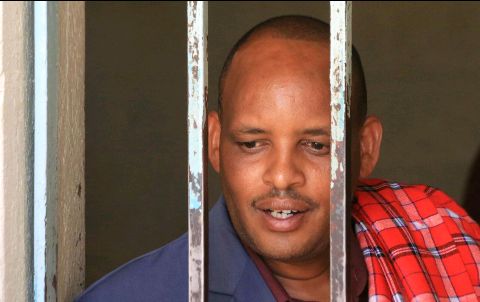Weaponising Social Media: Kenya’s Online Battle Against Activists
Social media in Kenya serves as a powerful tool for change, yet it is increasingly turned against those who wield it. Platforms like X have fueled youth led movements, such as the 2024 protests against the Finance Bill, which pressured President William Ruto to withdraw the legislation. However, this digital empowerment comes at a cost, with coordinated campaigns of harassment, disinformation, and threats aimed at silencing critics. Drawing from documented cases and expert analyses, this report examines the strategies employed, the personal toll on activists, and the implications for Kenya’s democratic space.
The Surge in Digital Activism and Counterattacks
Kenya’s Gen Z has harnessed social media to challenge economic policies and corruption, with hashtags like #RejectFinanceBill2024 garnering millions of views and mobilizing crowds. These efforts exposed police brutality during protests that resulted in over 60 deaths and widespread arrests. In response, a wave of online repression has emerged, including troll farms spreading false narratives and doxxing to expose personal details.
Amnesty International’s 2024 findings reveal that three in five young activists encounter online threats for human rights advocacy. This harassment often transitions to real world dangers, such as abductions and judicial persecution, as seen in the aftermath of the Finance Bill demonstrations. The goal appears to be discrediting voices and fragmenting unity, a tactic amplified during elections and unrest.
Personal Accounts from Targeted Activists
The experiences of prominent figures illustrate the severity of these digital assaults.
Rose Njeri: Detained for Digital Innovation
Rose Njeri, a software developer, created an online tool enabling Kenyans to easily submit objections to the Finance Bill 2025. Her innovation facilitated thousands of submissions, but it led to her arrest on cybercrime charges for allegedly spreading false information. Detained at Pangani police station, Njeri faced a barrage of online smears accusing her of foreign backed hacking. Released on bail, she continues to endure threats, highlighting how tools for civic engagement are criminalized.
Boniface Mwangi: Persistent Judicial and Online Persecution
Photographer and activist Boniface Mwangi has documented corruption and abuses for years. In 2025, he was arrested for allegedly facilitating terrorism linked to June protests. Charges were downgraded, but online deepfakes and accusations of foreign funding persisted. Mwangi reported home raids and threats, attributing them to state linked trolls. His case reflects a pattern of using digital smears to justify legal actions.
Hanifa Adan: Facing Gendered Violence Online and Offline
Hanifa Adan, a key organizer in the Finance Bill protests, endured sexualized threats and body shaming online. During demonstrations, she was assaulted by police, who seized her phone. Doxxing exposed her family, amplifying risks. Adan’s story aligns with reports showing women activists face heightened gendered abuse, deterring participation.
Other activists, including Shad Khalif and Jerotich Seii, report similar doxxing and smears, often tied to protest involvement.
Strategies Employed in the Digital Assault
Attackers use bot networks to flood platforms with disinformation, as identified in Freedom House’s 2024 Kenya report. Doxxing and deepfakes are common, with gendered elements affecting 43 percent of female users. Internet throttling during protests hinders communication. These methods aim to isolate targets and erode trust.
Consequences for Society and Democracy
Such repression stifles free speech, pushing activists toward burnout or exile. It undermines accountability, allowing policies to proceed unchecked initially. Economically, it deters innovation; mentally, it causes trauma.
Responses from Authorities and Platforms
The government denies orchestration, blaming rogue elements. Platforms enforce policies unevenly, prompting calls for better moderation. Organizations like KICTANet provide training.
Toward a Safer Digital Space
Kenya’s digital conflict threatens progress, but activists persist. Supporting rights groups and reporting abuse can counter this. The battle for online freedom is vital for Kenya’s future.





